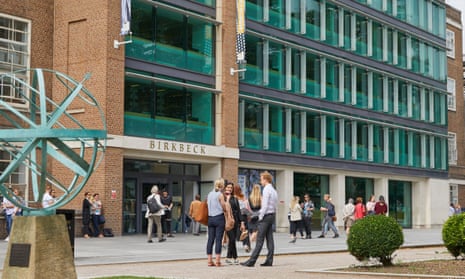After the government cancelled A-levels, the decision to award calculated grades based on a pupil’s past performance and teacher assessments was welcome news for most young people hoping to go to university. The vast majority will secure a place soon and be provided with at least some reassurance about their next step in life.
But the problem with awarding entry on the basis of calculated grades is that it discriminates against disadvantaged students. A number of studies have shown that pupils whose family, social, economic or other circumstances hinder their ability to study at school actually tend to do better in final exams than their predicted grades.
In a normal year, many students who are initially uncertain about whether to go to university end up applying late through clearing, or entering university via a foundation year. There is a real danger that those from disadvantaged backgrounds will not now do this, as their shortened A-level experience will mean they have started to disengage with education before these opportunities arise. This will have a lifelong impact on their socio-economic status and social mobility.
Young people from disadvantaged backgrounds often need more support and encouragement to apply for and go to university than others because there is not the same expectation placed on them. This is especially the case for those who obtain lower results than they were expecting.
I am particularly concerned that disadvantaged students who do not make their grades because of bias in the system will disengage from higher education entirely. Having been predicted poor grades, they will have spent the spring and potentially the summer at home with no coursework, exams or volunteering opportunities to keep them enthused about learning. They are also unlikely to have parents who push them into the clearing system. It is vital that the government helps these students.
To ensure that disadvantaged students with poorer grades who, in a ‘normal’ year, may have made it into university do not disengage, we’re proposing that the government approves a scheme to support them. Our chairman, Sir Andrew Cahn, and I have written to Michelle Donelan MP, asking her to do so.
The scheme would allow universities to issue unconditional offers to students from disadvantaged backgrounds for entry on to a structured foundation year higher education programme in any subject from October. These offers were banned until today on the grounds they are exploitative to students. But this isn’t always the case. If we have to wait until students receive their A-level or Btec results in August, we can’t give them the security of a confirmed place for which they can start to prepare now. This is why foundation years need to be exempted from this week’s government call for universities to minimise the use of unconditional offers.
While foundation years don’t guarantee entry on to undergraduate degree courses as students still need to achieve the required standard to progress, they serve as excellent introductions into university study and life. They coach students on essay-writing and provide a much-needed confidence boost for those who feel like they don’t belong in universities.
Under the scheme we’re proposing, students would be offered a place on a foundation year now to end any anxiety caused by uncertainty and maintain their interest in education. We and other universities taking part in the scheme would then provide free online pre-entry advice, support and preparatory guidance to these students immediately, so that they can work through the next five months and arrive in the autumn ready to succeed.
Covid-19 has strained all aspects of our society, but we shouldn’t let it disproportionally harm the futures of those who are most disadvantaged. We must provide the support, help and encouragement they need to progress into university.
Professor David Latchman, CBE is the Master of Birkbeck, University of London
